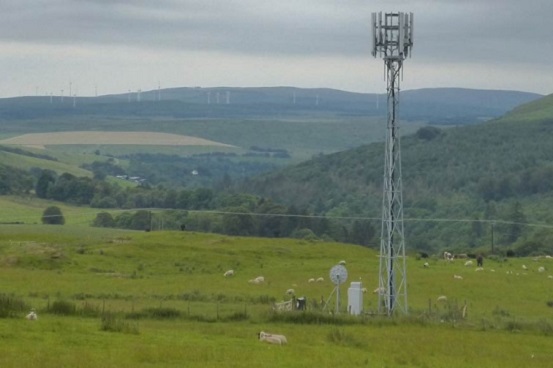MOBILE MAST RENTAL INCOME. Demand for better mobile connectivity is nothing new, but with the rollout of 5G on the horizon, it’s more important than ever for landowners to know where they stand. There are likely to be rent reductions ahead – so landlords will need to negotiate.
The Digital Economy Act 2017 became law in December 2017 and in so doing, it introduced a new Electronic Communications Code “the Code” which governs the behaviour of landlords and tenants with mobile phone masts.
Under threat of legal action by Operators, landowners are being pressured to accept derisory rents for as little as £45/year for a standard site (10m x 10m compound with 20m high mast) and using the threat of “compulsory acquisition” of these rights if landlords do not comply.
The Code does allow Operators to apply to the courts for a lease to be put in place but to do so, they have to show they made all reasonable efforts to reach agreement by negotiation.
A Code lease only provides very basic rights to Operators – other rights are only available by further negotiation with the landlord or determined by the court.
Scottish Land & Estates and NFUS has received a volume of enquiries from members regarding telecoms sites – and in particular, the derisory valuations being offered by the Operators. Together they set up a Telecoms Forum which includes D&R and other telecom specialists. This allows the sharing of information to the benefit of landlords
Landlord and Tenant Act 1954 – A warning to Scottish landlords
Some Operators are informing Scottish Landlords that under the Landlord and Tenant Act 1954, they have the right to extend the contractual term of their lease. The Landlord & Tenant Act 1954 does not apply in Scotland!
Leases in Scotland continue on tacit relocation and on the same terms, on an annual basis and are still fully binding and enforceable on all parties. In essence, this means Operators have the right to ask for a new lease, but the landlord is not obliged to accept it. The agreement has to be mutually acceptable and if a consensual agreement is not reached – the case can be referred to a tribunal.
There has been a dramatic increase in the number of cases referred to the land court under the new code . The Land Court in Scotland doesn’t have the capacity or time to deal with these cases quickly, so it is likely that cases heard in England will provide guidelines going forward.
Looking south of the Border, there are cases which have commented negatively on the valuation approach adopted by Operators and we are awaiting a definitive ruling.
We recommend landlords seek professional advice when negotiating rents and it is worth remembering that Landowner’s reasonable fees for Surveyors and Solicitors are usually paid for by the company looking to lease a new site or renew the lease on an existing site.
If you are affected by telecoms infrastructures or would like to discuss mobile mast rental income, contact your local D&R team or our head office 0131 449 6212
Article by D&R Surveyors Lynn Dandie & Murray Philp





